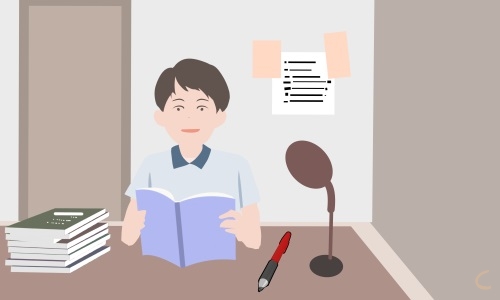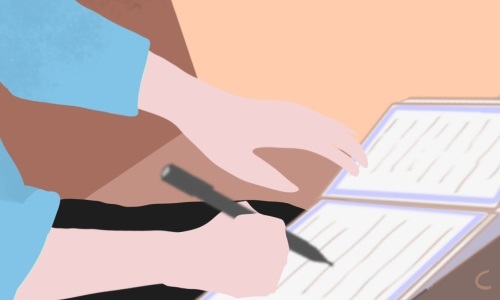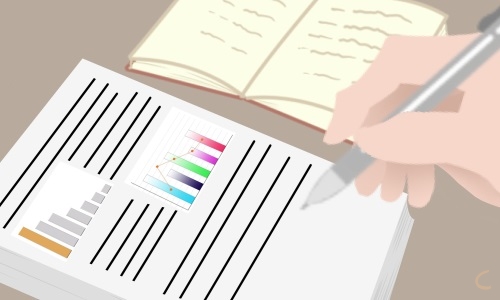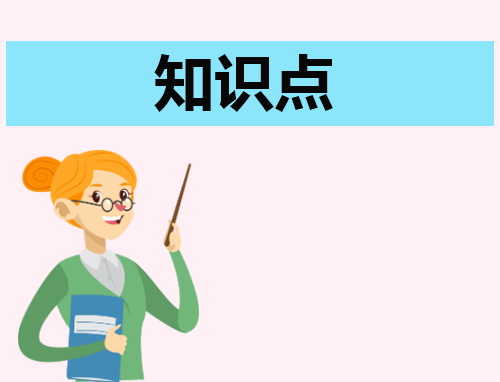高中学习容量大,不但要掌握目前的知识,还要把高中的知识与初中的知识溶为一体才能学好。在读书、听课、研习、总结这四个环节都比初中的学习有更高的要求。下面小编为大家带来高一英语上册重要知识点,希望大家喜欢!

高一英语上册重要知识点
1. win, beat, defeat 表示获胜、取胜的词语
(1) win v. 赢……,获胜,接比赛或奖项 win a game / a prize / an honor / a race. / Our team won the game 8 to 7. / He won by five points. / He won her love at last. / He won the first place in the competition.
(2) beat + 对手,表打败(尤指体育比赛) I can easily beat him at golf.
(3) defeat 表战胜,接对手The enemy was defeated in the battle.
2. in the end, finally, at last
三者均可表示“(经过周折、等待、耽误)最后,终于”之意。不同的是:
finally 一般用在句中动词前面,而 at last 与 in the end 的位置则较为灵活;
三者中at last 语气最为强烈,且可单独作为感叹句使用。After putting it off three times, we finally managed to have a holiday in Dalian. / At last he knew the meaning of life. / At last! Where on earth have you been? / But in the end he gave in.
另外,finally还可用在列举事项时,引出最后一个内容,相当于lastly。 Firstly, we should make a plan; secondly, we should carry it out; finally we should make a conclu- sion.
3. by sea, by the sea, in the sea, on the sea, at sea
(1) by sea “走海路,乘船”,用来表示交通方式,同 by ship 同义。 These heavy boxes should be sent by sea.
(2) by the sea “在海边”,相当于 by (at) the seaside。The children enjoyed themselves by the sea on Children's Day.
(3) in the sea “在海里,在海水中” There are many plants and animals in the sea.
(4) on the sea “在海面上”,“在海岸边”。I want to live in a town with a beautiful position on the sea.
(5) at sea 在海上;在航海 When he woke up, the ship was at sea.
4. be afraid, be afraid to do sth., be afraid of (doing) sth.
(1) be afraid 意为“担心,害怕”,多用于口语,常用来表示一种歉意,或遗憾,后可接 so 或 not,也可接 that 从句。I'm afraid (that) 其语意相当于 I'm sorry, but...。
-- Are we on time? 我们准时吗? -- I'm afraid not. 恐怕不准时。I'm afraid you'll get caught in the rain.
(2) be afraid to do sth 常表示“由于胆小而不敢做某事”。She is afraid to be here alone. / He is afraid to jump into the river from the bridge.
(3) be afraid of (doing) sth. 常表示“担心或害怕某事(发生)”。I was afraid of hurting her feelings.
5. live, living, alive, lively
(1) live adj.
① 活的;活生生的;(只修饰生物;只作前置定语) The laboratory is doing experiments with several live monkeys.
② 实况直播的 (不是录音)It wasn't a recorded show. It was live.
③ 带电的;燃着的;可爆炸的 This is a live wire.
(2) living adj. 活着的,有生命的(作表语或定语) She was, he thought, the best living novelist in England. / The old man is still living. (或alive)
(3) alive adj. ① 活着的;② 有活力的;有生气
作后置定语:Who's the greatest man alive?
作表语:Was the snake alive or dead? / My grandmother is more alive than a lot of young people.
作补语:Let's keep the fish alive.
(4) lively adj. 活泼的;有生气的;活跃的(作表语或定语) The music is bright and lively.
高一英语上册必修知识点
1.be good to对……友好be good for对……有益;be bad to…/be bad for…
2.add up加起来 增加
add up to合计,总计
add…to把……加到……
3.not…until/till意思是“直到…才”
4.get sth/sb done使……完成/使某人被……
5.calm down平静下来
6.be concerned about关心,关注
7.当while,when,before,after 等引导的时间状语从句中的主语与主句的主语一致时,可将从句中的主语和be动词省去。
While walking the dog,you were careless and it got loose.
8.cheat in the exam考试
9.go through经历;度过;获准,通过
10.hide away躲藏;隐藏
11.set down写下,记下
12.I wonder if…我不知道是不是…
13.on purpose故意
14.sth happen to sb某人发生某事
sb happen to do sth某人碰巧做某事
it so happened that……正巧 碰巧
15.It is the first(second…)that…(从句谓语动词用现在完成时)
16.in one’s power处于……的控制之中
17.It’s no pleasure doing…做…没有乐趣
It’s no good/use doing sth.做某事是没好处/没用的
18.She found it difficult to settle and calm down in the hiding place.it做形式宾语
19.suffer from患…病;遭受
20.so…that…/such…thay…
21.get tired of…对…感到劳累 疲惫
22.have some trouble with sb/sth.在……上遇到了麻烦
23.get along with sb/sth.与某人相处
24.ask(sb)for advice.(向某人)征求建议
25.make后接复合宾语,宾语补足语须用不带to的不定式、形容词、过去分词、名词等。常见的有以下几种形式:
make sb.do sth.让(使)某人做某事
make sb./sth.+adj.使某人/物…
make sb./oneself+v-ed 让某人/自己被…
When you speak,you should make yourself understood.
make sb.+n.使某人成为…
25.alone /lonely.单独的/孤独的
26.I would be grateful if…委婉客气提出请求
27.Why not do…=why don’t you do…
高一英语上册知识点总结梳理
1. We stood on the top of the mountain and surveyed the countryside. 我们站在山顶上,眺望乡村。
2. A quick survey of the street showed that no one was about. 扫视街道, 空无一人。
Add v. 增加
1. He added some wood to increase the fire. 他加了一些木柴,使火旺些。
2. If you add 4 to 5, you get 9. 四加五等于九。
3. Add up all the money I owe you. 把我应付你的钱都加在一起。
Upset a. 烦乱的,不高兴 v. _,_,扰乱,使心烦意乱,使不舒服
1. I'm always upset when I don't get any mail. 我接不到任何邮件时总是心烦意乱。
2. He has an upset stomach. 他胃不舒服。 3. The news quite upset him. 这消息使他心烦意乱。
Ignore v. 不顾,不理,忽视
1. I said hello to her, but she ignored me completely! 我向她打招呼, 可她根本不理我!
2. I can't ignore his rudeness any longer. 他粗暴无礼, 我再也不能不闻不问了。
Calm n. 平稳,风平浪静 a. 平静的,冷静的 v. 平静下来,镇静
1. It was a beautiful morning, calm and serene. 那是一个宁静、明媚的早晨。
2. You should keep calm even in face of danger. 即使面临危险,你也应当保持镇静。
3. Have a brandy it'll help to calm you (down). 来点儿白兰地--能使你静下来。
calm down vt. 平静下来(镇定下来)
1. His rage was soon calmed down by the rustic peace. 乡村的宁静很快就使他的怒气平静下来。
2. I told myself to calm down. 我告诫自己要冷静下来。
have got to conj. 不得不(必须)
1. You may not like him, but you have got to admire his persistence.
你可以不喜欢他,但你不得不佩服他那种坚忍不拔的精神。
2. I couldn't have got to the meeting on time -- unless I had caught an earlier train
高一英语上册重要知识点相关文章:
★ 高一英语的知识点
★ 高一英语知识点归纳
★ 高一英语必备知识点有哪些
★ 高一英语学科的知识点
★ 高一英语总复习知识点
★ 高一英语课本背诵知识点概括
★ 高一英语单元考试必考的知识点
★ 高一英语期末复习的知识点总结有哪些
★ 高一英语语法知识点总结
★ 高一英语必修基础知识点总结
上一篇:人教版高一上册英语知识点精选






